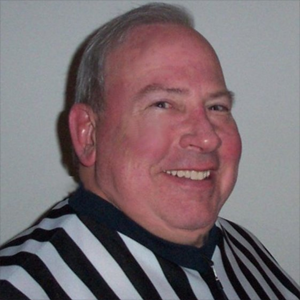I'm a licensed Aircraft Mechanic & Inspector with twenty five-plus years in the field. I've had a varied career so far, with time spent in the sheetmetal, mechanic, and inspection specialties. Most of my time is on heavy Boeing and McDonnell Douglas aircraft, of the passenger, cargo, and experimental type. This career isn't for everyone, but I enjoy it.
Please do NOT ask me to troubleshoot problems with your airplane, that is not what this Q&A is for.
Yes, of course it can get dirty. :D
You run into the same types of grease, oils, soot, etc.. that you do in car & truck maintenance. Though I would more liken it to heavy diesel trucks, in most cases.
General rule of thumb is: The newer the aircraft, the cleaner it is probably going to be to work on. But that is pretty universal as well.
I try to mitigate the mess in my old age, by wearing gloves when I have to handle filthy items; and keep lots of clean rags handy.
I try not to bring my mess home with me anymore. I'll never forget having to wipe down the inside of our washing machine sometimes, after doing a load of work clothes in it. It left a black film behind.
Yes, some aircraft do have mechanics that fly along with them. They are the very definition of Ride-On Flight Mechanics.
It depends upon the route the aircraft flies usually, that would determine whether or not a ride-on mechanic would be aboard. If you have multiple flight legs, that take you into airports where you have no outstation support for maintenance, then that would be airplanes you might find ride-on mechanics with.
Planes that typically fly to and from destinations that they have maintenance support at, will not have mechanics aboard.
In my experience, with cargo and passenger operations; we have at least one ride-on mechanic on board every flight usually. In addition to their ground duties, of doing checks, periodic maintenance, and repairs; they will often spend time during the flights doing troubleshooting research for ongoing issues with the aircraft; fixing things around the cabin or cargo decks, or doing inventory and upkeep on the in-flight spare parts kit, and tooling.
On passenger flights, ride-on mechanics do similar duties, but it is pretty certain that they will be called upon to do minor fixing during flights. There seems to always be something in the galley that decides to not work right, a drawer gets jammed, seat arm rests come loose, etc. All kind of minor stuff, but it needs to be taken care of if possible.
I suppose the larger airlines would be places that you would not see ride-on mechanics often, as they have outstation personell most of the places they go. You start to see it the smaller the airline is; or how 'charter' in nature their flight destinations tend to be.
If you don't know where your plane will be in a couple days, it is usually a good idea to have a mechanic hanging around to do things that need doing.
I see you mentioned wanting to become an "aviation maintenance engineer". That is not what we call ourselves in the USA. So I assume you are not talking about the US FAA's process of getting your Airframe & Powerplant mechanic certificates.
There is an 18 month documented on the job training period before you could test for either your Airframe or Powerplant certificate. Then another 18 months working towards whichever one you didn't get in the first 18 months.
I've never heard of a 30 month program. Nor a specific 4 year program.
Unless you are thinking of going to a regular college or university for your A&P, and continuing on for a four year degree.
I'm sorry. It is likely that you are asking about a certification program that is literally foreign to me.
I only know about the US FAA system.
Martin, you are going to have to research that question yourself, within the given aircraft AMM or systems manual.
The only RAT I've ever messed with, is the L1011's, and that was almost 20 years ago. I couldn't answer a question about that system anymore either.
Programmer
 Why are most developers socially withdrawn?
Why are most developers socially withdrawn?
Social Security Employee
 How do you check to see whether someone claiming disability is actually disabled?
How do you check to see whether someone claiming disability is actually disabled?
Basketball Referee
 Ever get into a physical altercation with a crazed parent?
Ever get into a physical altercation with a crazed parent?
Without fully understanding the context of your question..... I guess I would want both.
An avionics person with no mechanic experience is pretty limited; and vice versa.
Especially in these days of increasingly electronic aircraft.
I will probably start and end this answer with this: How do you define 'Success'?
If you only define success as being tied to a six figure income, then let's crunch some numbers (and I should note that I'm only talking the large aircraft jobs where you'd make the bigger money; as working on smaller aircraft for smaller companies will almost always be for a lot less money):
Starting wage here where I work, for an A&P with little to no experience averages about $20/hr. So at 8 hour days, that figures to $41,600/yr. You can see that it would be a pretty big stretch to make a six figure income at that level. I don't think you could get enough overtime to cover the gap.
But, what about a place like a Fed-Ex, UPS, or a major airline? Well, let's say you can start at $30/hr at one of those places; that'd gross you $62,000/yr working 8 hour shifts. Now the spread to a six figure is getting smaller. But you'd still have to work your tail off, on a shift that gave you a premium (such as nights/midnights) to make six figures.
Now, but you say, you've heard rumors of places like that (Fed-Ex...etc) where mechanics top out around $40/hr. Ok, now you're talking! $82,000/yr on 8 hour shifts becomes a reality. With six figures within reach, if you work some overtime throughout the year.
BUT. A job like that would be the exception, and you don't even make that kind of money until you've been there for ten years or so. Jobs like that don't come around that often, are hard to find, and getting hard to keep for 20+ years anymore. Companies seem to merge, go bankrupt, lay off, etc; with increasing frequency these days. So lots of the guys who used to make that kind of money, are now working at secondary airlines, for a lot less money.
So that was just some ballpark numbers, regarding straight up A&P licensed people, who work in the United States.
People who I have heard can make six figures, with a new A&P even, are mechanics who can get in with companies overseas, usually in the Middle East, working government or oil company contracts. Those mechanics can indeed pull in six figures. But they are gone overseas most of the year. And those jobs are very difficult to get; unless you have connections, or are a military veteran with the right experience already before you even get your A&P. And connections. (did I mention connections?)
So it is possible to make six figures with your A&P. But the price you pay, is never being home; not seeing your wife/girlfriend; missing your kids growing up; and even not being able to enjoy all the money you are making as much as you'd think, because all your toys you buy are usually at the home that you are never at.
Basically a lot of the things that you would think you are working to have and support, are the things it can cost you to make that six figure income. And to make that six figure income, throughout a career as a wrenching/metal bending A&P; is brutal to you physically. After ten years working either on the road all the time, or crazy amounts of overtime; you will feel like an old man (and you'll be lucky to not have some kind of addiction problem via cigarettes, alcohol, or worse). After twenty years of doing it? You'll wake up wishing you were dead sometimes; with all your joints worn out. After 30 years of doing that kind of work...... well, I don't know anyone personally who has. They either die young, find an easier position in aviation, or leave the industry.
Don't get me wrong, you can get promoted to management positions, sometimes quickly even; and make a good income too.
But in my opinion, the people who are telling you these success stories, about actual A&P's, who are actively wrenching on things: they are defining a successful career as simply making a six figure income. Which is all you'd be doing; MAKING that six figure income. You wouldn't be enjoying it very much.
That kind of thing might not seem important when you are young. I know when I was in my twenties, it didn't bother me to be gone all the time. Even to miss a lot of important moments in life. But the older I get, the more I feel that the stupid saying, "Work to live, don't live to work" is more true every day.
With an A&P, you have the ability to make a comfortable living. Where you take it, depends on the choices you make.
So, how do you define success?
I assume you mean that you are, or are going to be, an Apprentice (learnership?) Mechanic for South African Airways (?).
First thing: Going in the door, I would say is to commit to doing everything that the training program says for you to do; in the way it wants you to do it. Those company training programs are usually really well thought out and thorough in their methodology. So if they ask you to do really menial tasks for a while, there is a reason for it. Remember, nothing is beneath you when you are learning. If nothing else, the worst task in the world makes for a good story ten years down the road (but it usually teaches you something valuable in the process).
You'll learn how to do the job, earn your licensing, and hopefully end up with a long term position with the Airline.
Second: Learn the manuals you will be working with. This means the Airline's operating manual; Repair Station Manual (or equivalent); and most importantly the Aircraft Maintenance Manuals, and Illustrated Parts Catalogs. This doesn't mean you have to memorize them; but definitely be familiar with them. I can't underscore enough, how much of a hero you can look like sometimes, for simply being able to zero in on the information you need quickly. Especially when an aircraft is waiting on the ground for a repair or a part.
Know which manual applies to which aircraft (there are effectivity codes); and know how to figure out which part number in the IPC applies to your aircraft, so you do not order or request the wrong part (again, effectivity codes: learn how to use them)
Most importantly: Love the job, and have integrity in your work.
-OR-
 Login with Facebook
Login with Facebook (max 20 characters - letters, numbers, and underscores only. Note that your username is private, and you have the option to choose an alias when asking questions or hosting a Q&A.)
(A valid e-mail address is required. Your e-mail will not be shared with anyone.)
(min 5 characters)
By checking this box, you acknowledge that you have read and agree to Jobstr.com’s Terms and Privacy Policy.
-OR-
 Register with Facebook
Register with Facebook(Don't worry: you'll be able to choose an alias when asking questions or hosting a Q&A.)